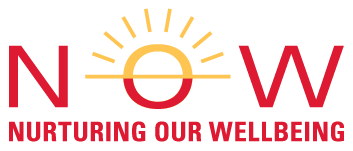
This work will be dynamic and will evolve over time as we work to strengthen our culture to support staff wellbeing.
The Division of Student Affairs at Iowa State University is in the business of changing lives. Our division is the heartbeat of the university. We support students during their journey at ISU to enhance their success, learning, wellbeing, inclusion, and retention.
We know wellbeing is influenced by individual behavior, attitudes, and knowledge, group, and office norms, as well as the environment. Policies, practices, norms, expectations, and culture within an organization all play a role in overall wellbeing. While individual responsibility and behavior is an important factor that contributes to one’s wellbeing, the environment, culture, and conditions within an organization are an equally important factor that influence staff wellbeing. We view our work and responsibility in the division as creating a culture through norms, expectations, and practices that support staff wellbeing to create the conditions for staff to reach their optimal potential.
Student affairs work is hard. It is rewarding but can also be emotionally and physically demanding. It requires staff to be well to support students every day. Historically and currently, the culture, environment, and conditions within student affairs (e.g. high workload, challenges with work/life balance, demanding work, etc.) across the country has led to poor retention, high turnover, and poor wellbeing for staff. At Iowa State University, we recognize and acknowledge how this culture and the conditions within an organization affect staff and our work to support students.
To proactively address these issues, we are committed to shifting the culture within the division through setting norms that a) support wellbeing, b) seek continuous feedback from staff around wellbeing, and c) implement strategies that create the conditions for staff to thrive. We believe this will help advance our mission priorities of student and staff success.
As employees within the Division of Student Affairs, we will communicate the expectations and norms we want to establish for the division. While some of these norms in practice may look different for some areas, the goal is to maximize the conditions across the division that address staff needs and enhance wellbeing.
Over time, the Division of Student Affairs will build in practices (or “norms”) that help us shift our culture towards wellbeing. Social and cultural norms are standards or patterns that are typical or expected of a group. These norms play a role in influencing our individual and group behavior. Setting and communicating norms that support staff wellbeing is critical to shift the culture towards enhanced organizational wellbeing. Our goal is for ALL Division of Student Affairs areas and employees across the division to live these norms, including continuing certain norms you are already doing.